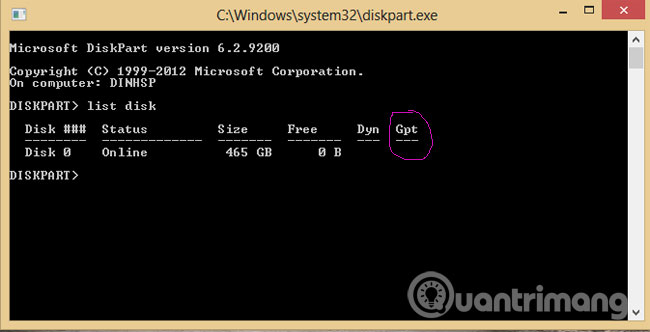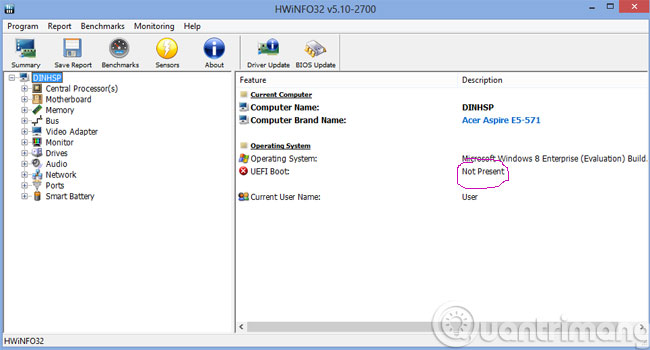Concept of UEFI standard in computers
UEFI ( Unified Extensible Firmware Interface ) was developed by Intel to address the weaknesses of the BIOS as well as replace the old and aging BIOS standard. Of course it will be much more powerful than the BIOS and is really useful for things like Overclocking.
1- Compare UEFI and BIOS standards
UEFI BIOS Only limits 16-bit processing and memory addressing is 1MBFeatures 32-bit and 64-bit processing, allowing users to use more RAM to address more complex tasks. Moreover, UEFI is designed with a separate structure and uses driver level for independent modules. MBR limited to 4 main partitions per drive and bootable disk size is only 2.2TB
UEFI uses GUID partition table and uses Globally Unique ID to address partitions and allows hard drive booting up to 9.4 Zb
In addition, UEFI also allows multiple boot options, no specific file system rules and extremely fast boot speed, much faster than the old BIOS standard.
UEFI continues to support older extensions such as ACPI but does not depend on a 16-bit environment. If there was an error such as loose RAM, the BIOS will beep, instead, the new standard in UEFI extensions can check the parts better.
UEFI is the new standard that is replacing the old Legacy standard and is only supported for 64-bit versions of Windows.
In the article below, we will show you how to see if your computer is booting and using which standard (UEFI or Lagacy?)
2- Check if the computer is using what standard?
Method 1 : Press Windows + R to open the Run dialog box and enter the command msinfo32 and press Enter . Here, you can scroll down and navigate to the BIOS Mode section to see which standard your computer is booting.

Method 2 : You also open the Run dialog box and enter the diskpart command, press Enter . The Diskpart window appears, continue typing list disk command and press Enter . Here will show all the hard drive lists, for example, if you have more than 1 hard drive or you are connected to a USB drive, the hard drive with the computer is also listed.
If you notice the Gpt column, if the hard drive name in the Gpt column has a *, it means that the hard drive is running in GPT standard and then the MBR standard.
Note: If using UEFI standard, format the hard drive as GPT and if using standard Legacy , hard drive format is MBR .

Method 3 : Use MiniTool Partition Wizard
Open the application and right-click on the Basic drive and notice the following line
- Convert MBR Disk to GPT Disk : Convert from MBR format to GPT
- Convert GPT Disk to MBR Disk : Convert from GPT format to MBR
If the line is lighted, you are in that standard, specifically the MBR

3- Check if the computer supports UEFI?
Method 1 : Use HWiNFO software
You open the application to check, at the main interface of the program you look down the line UEFI BOOT. If it is Present then your computer will support UEFI and if it is Not Present, then you can watch it.

Click on the Motherboard and scroll down to view the UEFI BIOS line, if it is still Not Present, then condolences, your computer does not support UEFI but only BIOS support. If it is Capable, then your computer will support UEFI standard

Method 2 : Check in the BIOS
Go into the BIOS and find out if there are any words related to UEFI or support Securiry boot, then surely the computer will support UEFI standard.
Hopefully after reading this article, you will understand more about UEFI standard as well as determine which computer you are booting in and see if your computer supports UEFI?
- Theory - What is VPN?
- Theory - What is a proxy?
- Theory - What is SOCKS?
Having fun!
You should read it
- ★ How to check and access UEFI settings on Windows 10
- ★ How to check a computer using UEFI or BIOS
- ★ How to check the computer that supports EFI / UEFI or Legacy BIOS
- ★ Steps to convert MRB to GPT drive structure in Windows 10
- ★ What is UEFI and Legacy standards? Differences between UEFI, Legacy, BIOS